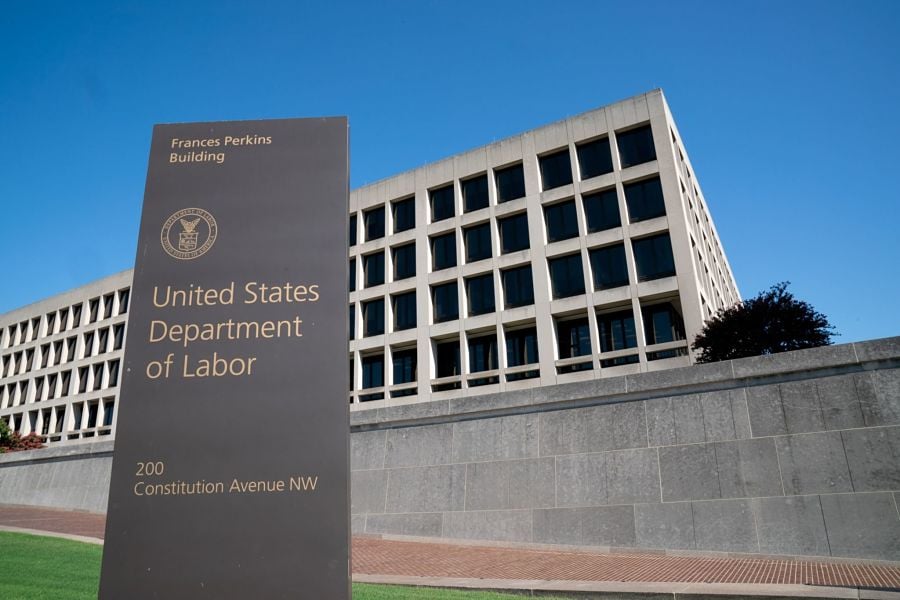

Smaller financial advisory firms may not be ready for the regulatory world they’re living in now that the DOL is policing most of a retirement-savings advice rule.
On Tuesday, the Department of Labor began enforcing an investment advice regulation for retirement accounts that was approved by the agency late in the Trump administration.
The DOL fiduciary rule provides exemptions under federal retirement law — the Employee Retirement Income Security Act — allowing retirement-plan fiduciaries to receive compensation for advice that would otherwise be prohibited, such as third-party payments, as long as they act in a retirement saver's best interests.
To qualify for exemption, most advisers making recommendations for retirement accounts must declare their fiduciary status in writing to their clients. They also must disclose their compensation structure and conflicts of interest, and adopt policies and procedures to comply with impartial conduct standards.
The regulation would trigger a fiduciary standard of care for most recommendations to roll retirement funds over from 401(k) plans to individual retirement accounts.
Some smaller firms are not fully aware of the new requirements and could have inadvertently missed the Feb. 1 deadline, said Fred Reish, a partner at Faegre Drinker Biddle & Reath. There's also the risk that their policies and procedures won't withstand regulatory scrutiny.
"For example, some firms may not appreciate the process required, and the information that must be gathered to make a compliant rollover recommendation,” Reish wrote in an email.
The fiduciary rule became effective last February and the DOL was slated to begin enforcing it in December. But the agency delayed implementation for most of the rule until Tuesday.
Another part of the rule will go into force on July 1. At that time, retirement advisers must document and disclose why a rollover recommendation is in a client's best interests.
The rule is in place after years of work on the issue. An Obama administration fiduciary rule was vacated by a federal court, which led to the Trump administration version.
Despite the long regulatory road, implementation will be a heavy lift, said Barry Salkin, a senior attorney at Wagner Law Group.
Financial firms “have had a substantial amount of time to do it,” Salkin said. “I don’t know if they’re there yet. There are still items you’d like to have the DOL provide more guidance on.”
The insurance firm Principal was ready for Tuesday’s compliance deadline in part because of changes it made to its policies to prepare for the Obama-era rule, said Lance Schoening, director of policy for Principal Financial Group.
For instance, the firm’s advisers don’t make rollover recommendations immediately when someone has had a life event — such as retiring or losing a job — that might affect their 401(k) plan. Instead, Principal initially focuses on educating the person about his or her options.
“We’ve maintained a number of procedures that have helped us run on a track to comply with the new prohibited transaction exemption,” Schoening said.
The extra time to prepare internal systems for documenting rollover decisions — and comparing a new plan to a client’s existing plan — will be helpful, he said. “Firms are going to have to really focus on getting that information from their clients.”
The fiduciary rule that is now in force covers investment advisers and brokers and is meant to align with the Securities and Exchange Commission’s Regulation Best Interest, the broker standard of care.
But independent insurance agents are governed by a different rule, known as 84-24. Those advisers are policing themselves, said Ryan Brown, corporate counsel at M&O Marketing.
“No financial institution has raised its hand to say we’ll make sure insurance agents are in compliance with this,” Brown said.
The DOL has on its agenda another rulemaking proposal that likely would expand the definition of who is a fiduciary and include more advisers, such as insurance agents who are not adhering to 84-24.
“The anticipation is that the department may want to conform those exemptions to the new exemption that is [now] online,” Schoening said.

Since Vis Raghavan took over the reins last year, several have jumped ship.

Chasing productivity is one thing, but when you're cutting corners, missing details, and making mistakes, it's time to take a step back.

It is not clear how many employees will be affected, but none of the private partnership's 20,000 financial advisors will see their jobs at risk.

The historic summer sitting saw a roughly two-thirds pass rate, with most CFP hopefuls falling in the under-40 age group.

"The greed and deception of this Ponzi scheme has resulted in the same way they have throughout history," said Daniel Brubaker, U.S. Postal Inspection Service inspector in charge.
Stan Gregor, Chairman & CEO of Summit Financial Holdings, explores how RIAs can meet growing demand for family office-style services among mass affluent clients through tax-first planning, technology, and collaboration—positioning firms for long-term success
Chris Vizzi, Co-Founder & Partner of South Coast Investment Advisors, LLC, shares how 2025 estate tax changes—$13.99M per person—offer more than tax savings. Learn how to pass on purpose, values, and vision to unite generations and give wealth lasting meaning
